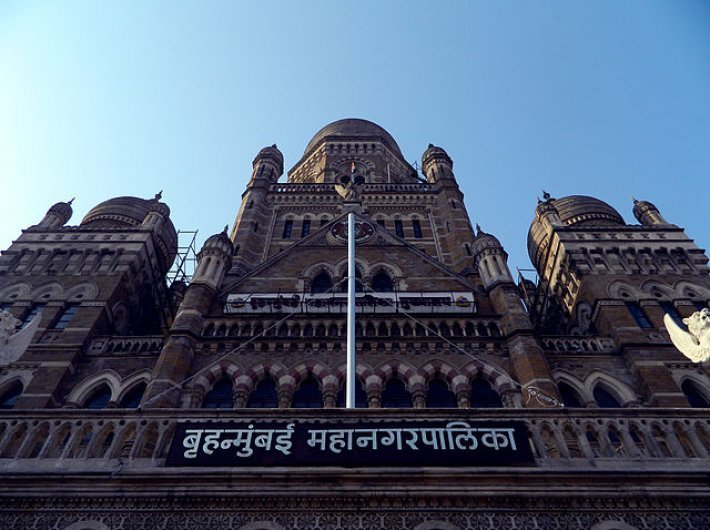Decentralisation, use of technology can make it better-managed, future-ready city: Praja Foundation report
The ‘Mumbai Model’, which helped the city beat Covid-19, came in for praise from the supreme court too. The BMC can now extend that model of decentralisation for more efficiency in day-to-day citizen services and to make Mumbai a better-managed and future-ready city, says the Praja Foundation.
In its latest report, ‘Status of Civic Issues in Mumbai’, the organisation analyses the status of service deliveries including water, sanitation and SWM in the city during 2020-21 and says that MCGM’s model of management of Covid-19 should be carried forward for rebuilding and improving services at the ward level.
It praises the civic body’s introduction of various noteworthy initiatives. MCGM during this period successfully used decentralised control rooms with command posts in each of the city’s 24 wards (Covid-19 war rooms) as well as used technology to the optimum. MCGM also reintroduced the ‘1916’ call centre, a unified complaints system as a Covid call centre. Praja had incubated the 1916 call centre in 2003.
The report says that MCGM must make extensive use of technology which it has previously used for live-streaming budgets, online ward committee meetings and so on; and collaboration with various stakeholders in both the public and private sectors will provide innovative solutions to the city’s growth.
“This will not only help MCGM in providing basic day-to-day services efficiently but also in becoming a future-ready city,” it says. It further says that energising ward committees through use of technology can be a game-changer.
“Data suggests that in 2017-2019, an average of 22 meetings were conducted every month. However, between October and December 2020, when the ward committees started meeting online, the average number of meetings increased to 28 each month. This indicates that adapting to new technology and conducting virtual meetings could be beneficial in increasing the number of meetings, thus better representing a community’s interests and issues in the local government,” it says.
On water supply, the findings say that Mumbai overall receives an average water supply of 188 lpcd (litres per capita per day) which is higher than the Bureau of Indian standards (BIS) norm of 135 lpcd. Of this, non-slum areas receive 150 lpcd (at Rs. 19.44 per month) while the slum areas receive 45 lpcd (at Rs. 4.85 per month) through metered connections.
For their remaining needs of water, people in slums have to rely on water tankers and other sources which approximately cost them Rs. 500-550 per month.
“If MCGM is able to provide 135 lpcd (as per the BIS norms) of water supply to slum population through metered the connection then the cost will be as low as Rs. 14.54 per month as compared to Rs 500-550 they are currently paying,” Milind Mhaske, director, Praja Foundation, said.
With the new Kanjur waste processing facility, scientific disposal of waste increased from 32% in 2016-17 to 75% in 2019-20, but while the MCGM claims to have achieved 100% door-to-door garbage collection in its report in 2020, it actually received 3,943 complaints for garbage not collected. Additionally, it took an average of 29 days to resolve a water complaint and 43 days to solve all SWM complaints in 2020 when it received 11,595 SWM complaints. Key civic service complaints like sanitation took an average of 50 days to resolve and complaints of drainage took 36 days.
As many as 74% of complaints did not use the Councillor Code, though which elected representatives’ accountability can be increased.
“Mumbai, being the economic capital of the country, needs to run efficiently and the citizens of the city deserve apposite basic day-to-day civic services. Praja understands that a lot of citizens’ issues could not be attended to due to major focus being diverted towards Covid-19 this year and this has been reflected in our Civic Report as well,” said Nitai Mehta, trustee, Praja Foundation.
With regards to toilets, the report says that while as per Swachh Survekshan 2019 results, none of the inspected toilets were unusable and dirty; yet 255 complaints in 2019 and 227 complaints in 2020 were registered for unhygienic conditions of toilets.
Based on the Census 2011 data, currently there is only one public toilet seat per 752 males and 1,820 females when the Swatch Bharat Mission (SBM) prescribes one toilet for 100-400 males and 100-200 females respectively. Similarly, as per slum population figures, there is one community toilet seat per 45 males and 36 females when the SBM prescribes one toilet for 35 males and 25 females respectively.
The report says that MCGM must continue to conduct its own surveys on available facilities in toilets on a regular basis at least annually (its last the survey was conducted in 2015).
On budget, it says that the BMC’s initiative of live-streaming the budget announcement is praiseworthy as it exposes citizens to the process of budgeting. Moreover, Mhaske says that since 2015, a difference between budget estimates and revised estimates has been seen where capital budgets have been consistently lower than the budget estimates. An outcome-based budget will ensure a targeted development within the city. He adds that there is a need to provide a simplified budget structure that the common citizens can easily understand. “An audit report of the local government by elected wing can ensure better transparency in this process.”

